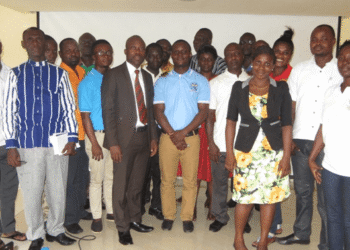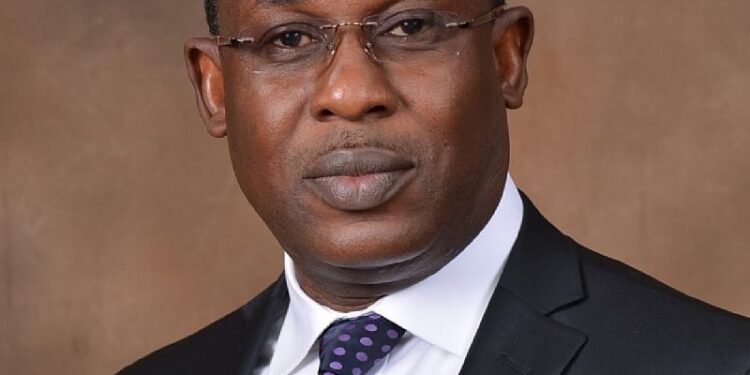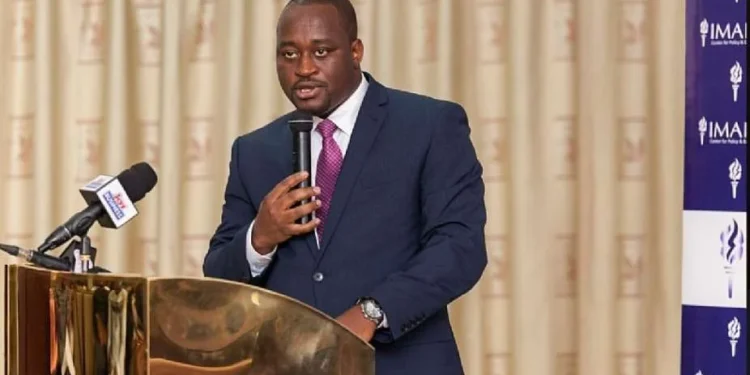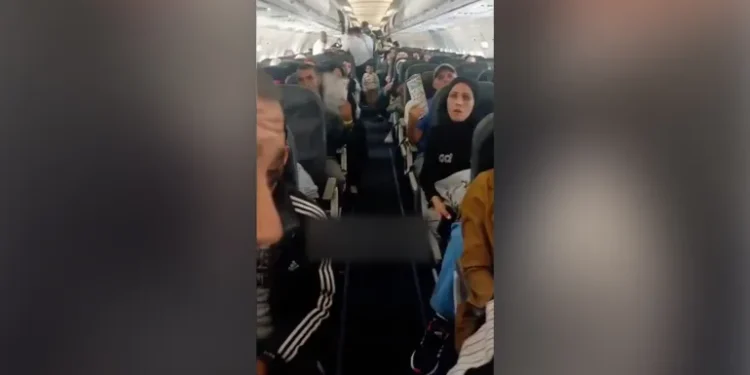Ken Ofori-Atta, the Minister of Finance, has justified the E- Levy in the 2022 budget, claiming that it will enable Ghana’s tax-to-GDP ratio to reach a level equivalent to peer economies in the sub-region.
Mr. Ofori-Atta added that the E-Levy will be a vital tool not only for boosting Ghana’s tax-to-GDP ratio but also for promoting the government’s attempt to build an entrepreneurial country while speaking as a guest speaker at the PWC 2022 budget digest.
“We are determined to enhance domestic revenue mobilization and set the nation on a path to building an entrepreneurial nation. In truth, the E-Levy is a necessary tool to increase our tax-to-GDP ratio and support the thrust of the government’s direction in the medium-term promoting entrepreneurship, and supporting our youth.”
Ken Ofori-Atta, Finance minister
The sector minister, however, lamented the small number of people paying taxes in the country. He then urged all and sundry to pay their taxes to see a better Ghana.
According to the minister, only 2.4 million people, or about 8% of the country’s 18.4 million taxpayers, were registered as personal income taxpayers as of August this year.
In the corporate sector, the minister added that the situation is similar, with data showing that only 45,000 of the more than 150,000 registered entities at the Registrar-Department Generals were registered as corporate taxpayers, while 54,000 people were registered as self-employed taxpayers at the Ghana Revenue Authority (GRA).
“Only 33.3% of employees contributed to income taxes, while 1.6% of self-employed individuals contributed to income taxes in 2019. These statistics are a poor reflection on the country and highlight the need for change in the narrative. We can’t continue to depend on only 8.2% of our citizens to carry the burden of 30.8 million of our people and also expect to transform the economy.”
Ken Ofori-Atta, Finance minister
Concerns about the levy
Mr. Ken Ofori-Atta, the finance minister, said during the presentation of the 2022 Budget Statement in Parliament on Wednesday, November 17, 2021, that the government would implement a 1.75 percent levy on mobile money and other digital transactions beginning January 1, 2022, with exemptions for transactions totaling GH100 or less per day, or about GH3000 per month.
The imposition of this electronic levy (e-Levy) on mobile money (MoMo) as well as other electronic payments has alarmed some Ghanaians. They disclosed that introducing the fee in the 2022 Budget will exacerbate the country’s high cost of living.
In reaction to the decision, Mr. Asitanga intimated “what struck me most, as usual, is the introduction of another tax… It is so sad that mobile money transaction is about to be taxed on top of all the taxes we have to pay.
“This is going to burden us the more because we already pay GH¢1 per every GH¢100 transactions to the mobile money agents. Already we are being suffocated with the GH¢1 charge.”
Mr. Asitanga
Moreover, Mr. Cassiel Ato Forson, a Ranking Member of Parliament’s Finance Committee, told the media following the Budget reading that the fee will exacerbate Ghanaians’ poverty.
“We have seen a 15 percent increase in all government fees and charges and we think that it is a bit too much. The government may need to think about it. These new tax measures will bring great suffering to Ghanaians who have already been choked with taxes.”
Mr. Cassiel Ato Forson,
Read Also: We have spent more than $30m to fight Covid-19 in Ghana- US Ambassador























